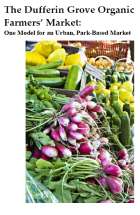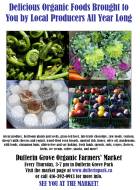
Pages in this Folder:

Related Folders:
See also Department Site Map
Publications:
Market-related videos
Comments?
For the basics, see
- Website & Privacy Policies
- How To Get Involved
- The Role of the Park
Search options:
Department Site Map
Custodians:
 Food News 2013
Food News 2013
Food News 2013
posted on May 21, 2013
Local food movement wins victory but how ‘real’ is it: Porter
The Canadian Food Inspection Agency has scrapped its antiquated definition of “local” but the rules are still too arcane for one caterer.
By: Catherine Porter Columnist
Published: May 13 2013
Source: The StarYour kid can once again eat a “local” snack of vegetables and dip at daycare, provided by catering company Real Food for Real Kids. And you can stop by Alliston for a “locally raised” beef burger at the Bistro Burger Joint.
A magical thing happened last Friday. The Canadian Food Inspection Agency agreed with reason and scrapped its antiquated definition of “local.” “Local,” according to the federal government’s new definition, no longer means it must be grown within 50 kilometres or one municipality away. It now means %newwinhttp://www.thestar.com/news/canada/2013/05/10/ontario_food_now_qualifies_as_local_under_federal_policy_change.htmlgrown within your province, or 50 kilometres beyond the provincial boundaries]] — until a new definition is devised.
That’s great news. I’ll say it: Way to go, CFIA.
Exclusive: Scientific paper that announced high levels of lead in rice suddenly retracted by its author
Category : The Health Hazards that are maiming & killing us (350) Date Posted : May 3, 2013
Topic :Chemical & other Poisoning (42)
Source Date :May 21, 2013
by Mike Adams, the Health Ranger, NaturalNews Editor
A recent scientific paper that concluded imported rice was heavily contaminated with lead has been suddenly withdrawn by its author. Natural News has confirmed from the author, Monmouth University Chemistry Professor Tsanangurayi Tongesayi, that the paper is "recalled until further notice."
The paper, announced with great fanfare at the American Chemical Society last week, was also accepted for publication in the Journal of Environmental Science and Health, Part B: Pesticides, Food Contaminants, and Agricultural Waste. It found that some sources of rice, including rice from China, were contaminated with as much as 12,000% more lead than allowed under current safety limits for children.
The story was widely published across the media, including Natural News. Its findings, after all, were consistent with many other findings about the contamination of foods grown in heavily polluted countries. So no one thought the conclusions might be in doubt. When we hear about "scientists" conducted metals analysis in foods, we tend to think they know what they're doing, right?
But the authors themselves discovered worrisome discrepancies when they sent the samples to a third-party lab for verification. According to an email acquired by Natural News, the results from this third-party lab showed all sub-ppm levels of lead, not the much higher numbers the Tongesayi team had reported.
Why the Tongesayi team did not conduct third-party lab verification before announcing the results has not been explained.
March 27 2013:
Huge enemies settle their lawsuits, agree to collaborate on genetically modified seeds: Monsanto and Dupont





 Printer friendly version
Printer friendly version